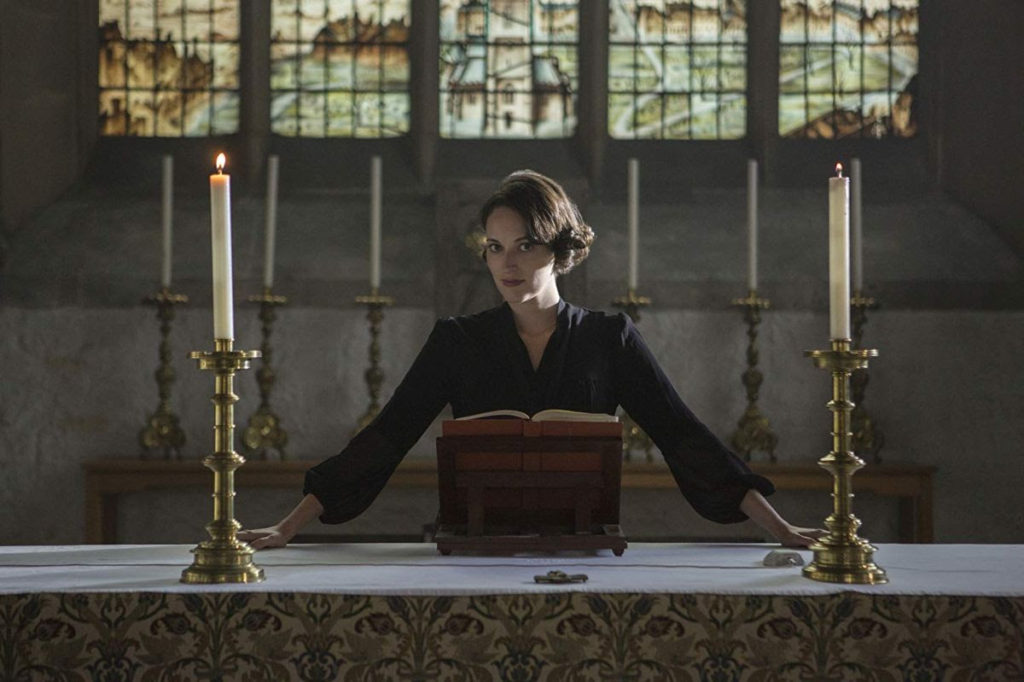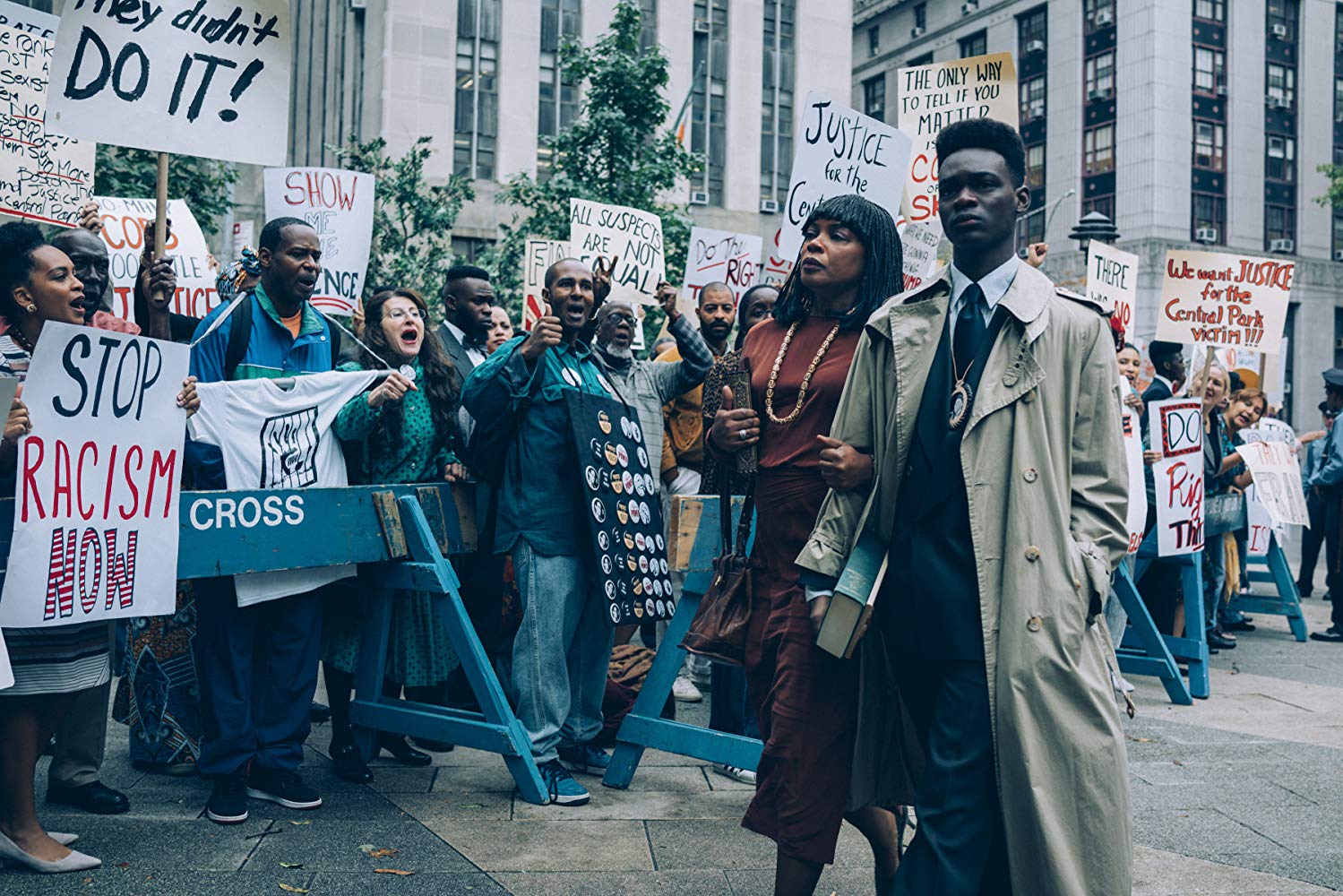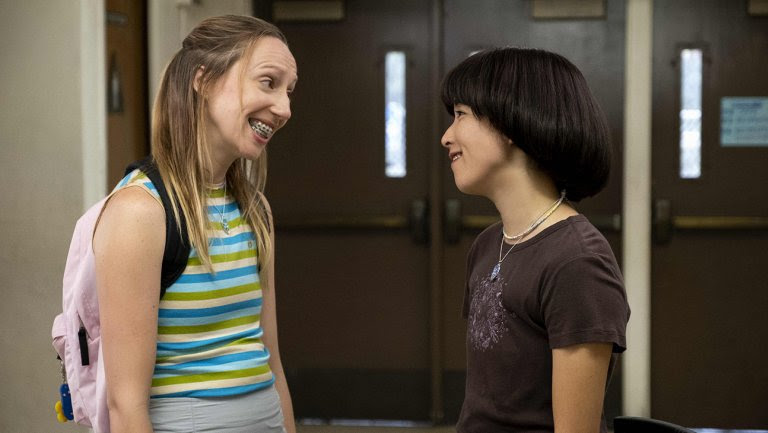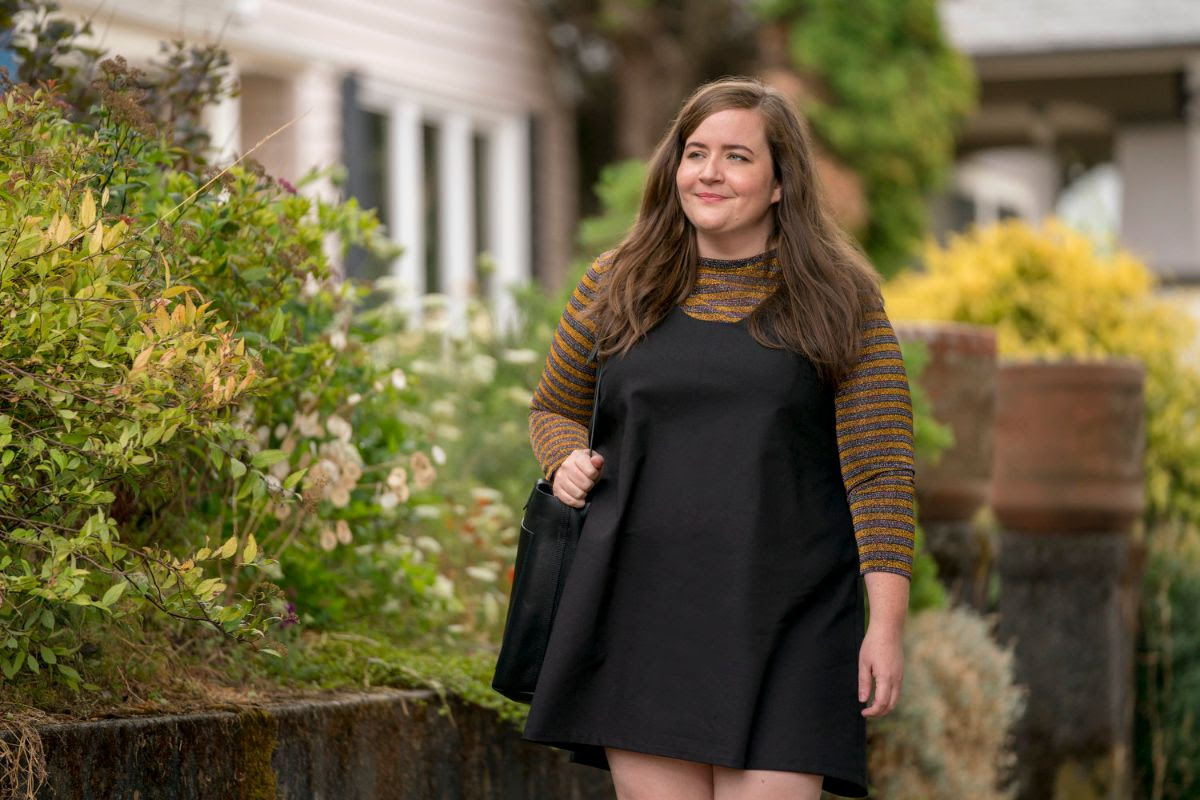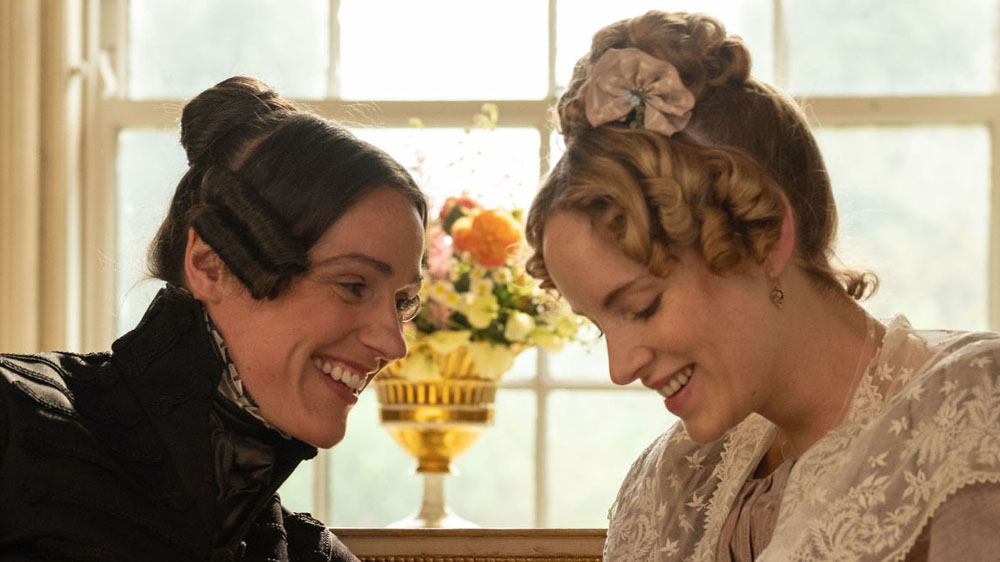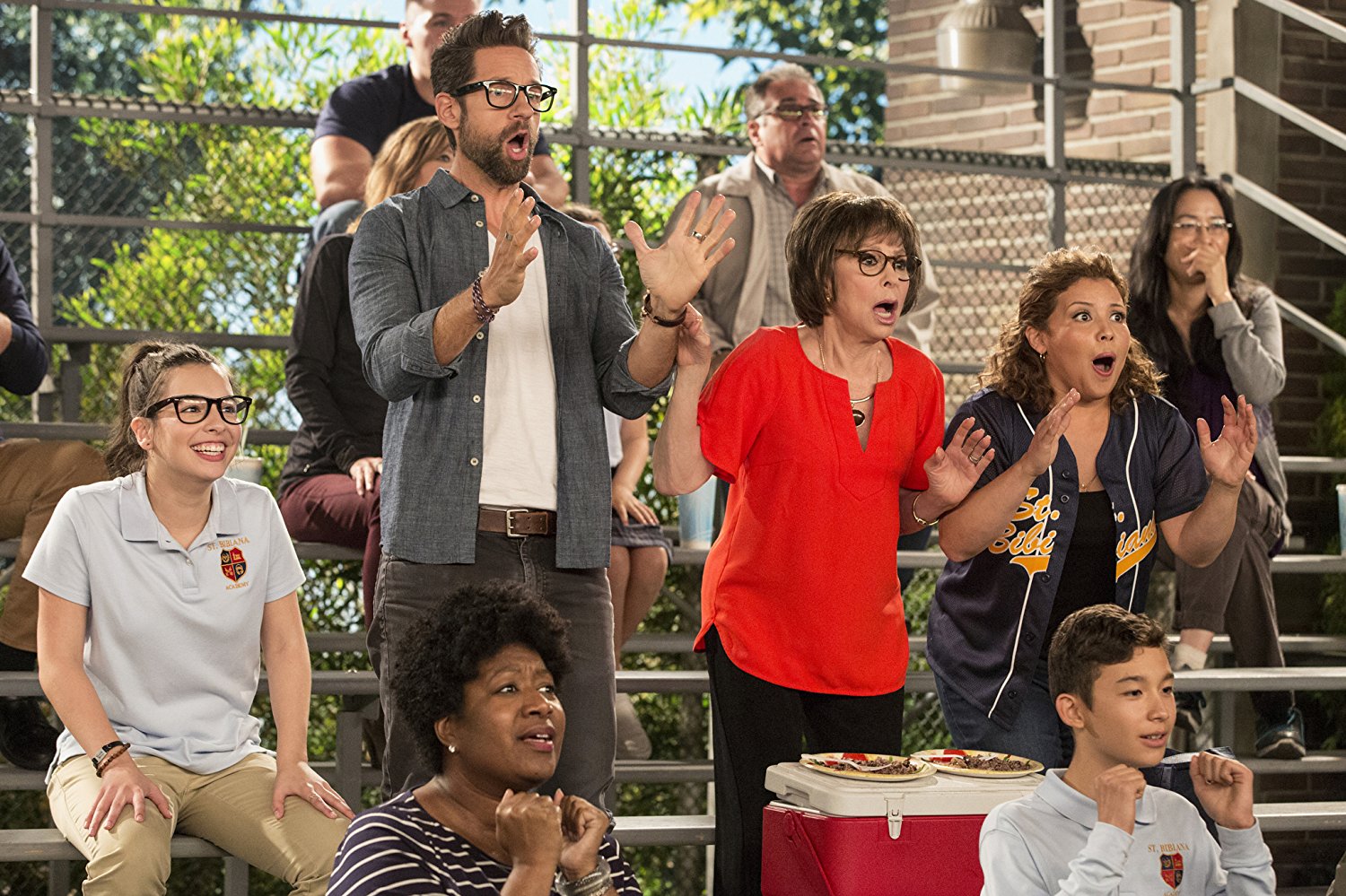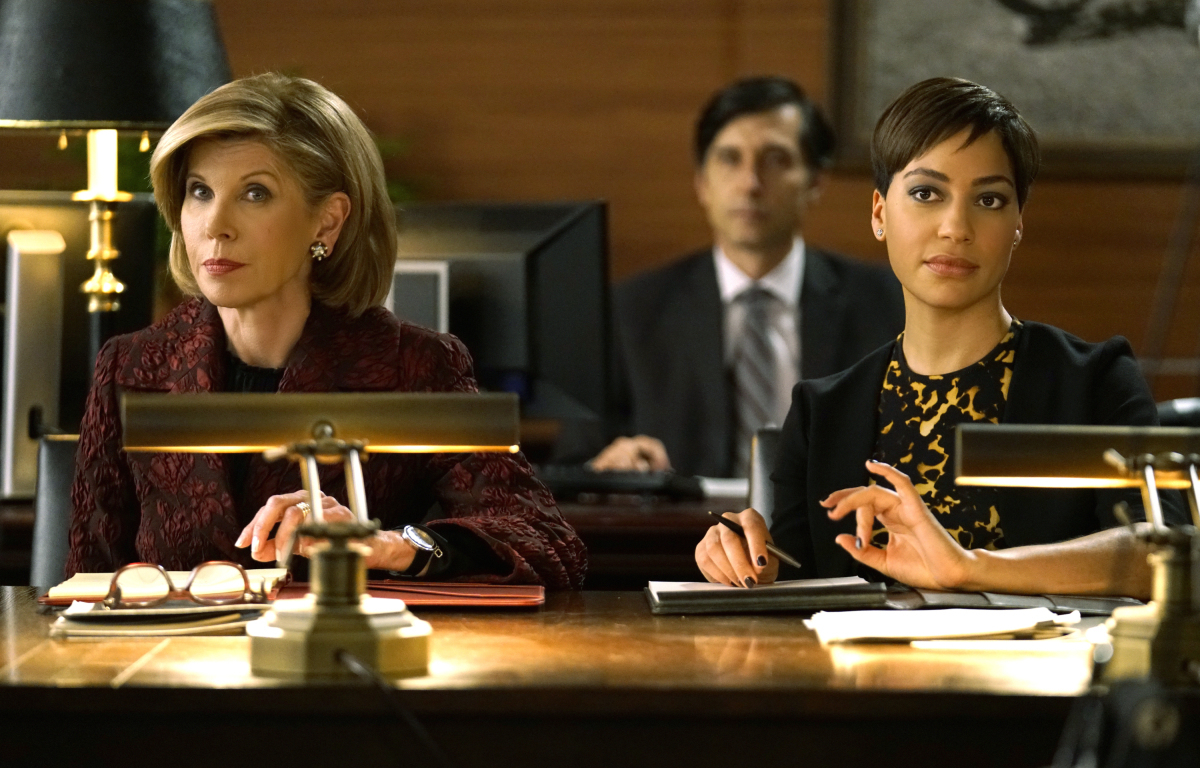It’s been an exciting year for television, especially women-driven television. Long-anticipated projects on new streamers, such as Apple TV+’s “The Morning Show,” finally premiered. Docuseries and fact-based shows like “When They See Us” and “Surviving R. Kelly” inspired conversation and change off-screen. New and returning series alike pushed the form forward, whether by deconstructing the time-loop trope (“Russian Doll”) or portraying the front lines of the contemporary resistance (“The Good Fight”). And then there was that dark British comedy that cleaned up at the Emmys, netted pretty much universal acclaim, and made a superstar of Phoebe Waller-Bridge.
Bearing all this in mind, it was especially hard for us to select our favorite television projects this year — but somehow we did. Here are Women and Hollywood’s top TV picks for 2019.
“Fleabag” – Created by Phoebe Waller-Bridge
Season 1 of “Fleabag” dropped to positive reviews and attracted a relatively small but passionate following. Season 2 received some of the most rapturous reviews of the year, became a major part of the cultural conversation, and catapulted series creator, star, and writer Phoebe Waller-Bridge’s career — and deservedly so. Waller-Bridge was the story at this year’s Emmy Awards, where “Fleabag” was named Outstanding Comedy Series and Waller-Bridge also took home the honors for Lead Actress in a Comedy Series and Writing for a Comedy Series.
Set over a year after the events of Season 1, “Fleabag’s” sophomore outing sees its titular character in a very different place than we last left her. Fleabag (Waller-Bridge) has sworn off casual sex and is thriving professionally. Business at her guinea pig-themed café is bustling. But Fleabag is still burying the trauma of losing her best friend and her mother. It’s an unexpected connection with a (hot) priest — rather than the free therapy session her dad gifts her — that leads Fleabag to confront her past and finally open up.
Beautiful, bittersweet, and as darkly comic as ever, “Fleabag’s” second — and what creator Waller-Bridge has said will be its final — season is a triumph, and the show goes out on a real high note. (Laura Berger)
“When They See Us” (Miniseries) – Created and Directed by Ava DuVernay
Continuing her long tradition of social justice storytelling (“13th,” “Selma,” “Middle of Nowhere”), Ava DuVernay’s Emmy-winning Netflix miniseries puts a human face to the real-life saga of the Exonerated Five, previously known as the Central Park Five. In 1989, Antron McCray, Kevin Richardson, Yusef Salaam, Raymond Santana, and Korey Wise, all young men of color, were blamed for the brutal sexual assault of a white woman. They were in relative proximity to the crime, which was proof enough for the law enforcement officials who beat, tortured, and coerced false confessions from the Five.
Creator/director DuVernay, along with her co-writers Attica Locke, Robin Swicord, Michael Starrburry, and Julian Breece, chronicle the Five’s lives from that fateful night in the park to their wrongful incarceration to their exoneration in 2002. Along the way, “When They See Us” explores the ways the justice system exploits already marginalized communities, emphasizes the importance of activism, and draws frightening parallels between the cultures of 1989 and 2019.
The miniseries has brought the Exonerated Five’s stories back into the spotlight, renewed conversations about police brutality, and even led to concrete consequences for Linda Fairstein, the sex crimes prosecutor who oversaw the case. “When They See Us” is that rare TV project that is infuriating, heartbreaking, and inspiring in equal measure. (Rachel Montpelier)
“Unbelievable” (Miniseries) – Created by Susannah Grant, Ayelet Waldman, and Michael Chabon
Similar to “When They See Us,” “Unbelievable” is a Netflix miniseries telling the true story of an egregious miscarriage of justice. Based on a ProPublica article, the show presents two different storylines that eventually collide: a rape case that is handled horribly, and a series of related rapes that are investigated with care, precision, and empathy. The first involves a teenager who is raped in her apartment by a stranger. Marie (Kaitlyn Dever) is traumatized and treated coldly by the police, her timeline of events doesn’t always match up, and she’s ultimately pressured to recant her story. Once word gets out that she “lied,” her life falls apart.
The other storyline takes place several years later, and follows detectives Grace Rasmussen (Toni Collette) and Karen Duvall (Merritt Wever) as they track down a serial rapist whose modus operandi is similar to that of Marie’s assailant. Unlike the officers assigned to Marie’s case, Grace and Karen offer survivors compassion and comfort. Their methods are gentler, warmer, and end up yielding much better results — and putting the predator away for good.
These two sides of “Unbelievable” make it, simultaneously, a brutal indictment of rape culture as well as a no-frills depiction of good police work. The first episode fills you with rage but, by the end of the story, you’ll feel something resembling hope. (RM)
“PEN15” – Created by Maya Erskine, Anna Konkle, and Sam Zvibleman
“PEN15” is the perfect “teen” show for adults — especially those who thought middle school was hell on earth. Co-creators Maya Erskine and Anna Konkle, both in their early 30s, play 13-year-old versions of themselves in this Hulu comedy. The rest of Maya and Anna’s classmates and friends are actually played by age-appropriate actors, which just heightens the delightful weirdness.
Despite its central adults-playing-adolescents premise, “PEN15” is one of the most honest portrayals of early teendom in recent memory. And because Erskine and Konkle are adults, they’re able to explore real parts of puberty, like masturbation, without exploiting underage performers. Plus, their worldviews as adults in 2019 allow them to sensitively inform the show’s very 2000 storylines. “Posh,” probably the debut season’s most discussed episode, sees Maya, who is half-Japanese, being forced to play Scary Spice in a sketch because she’s the only non-white participant. She plays along when the popular girls pretend she’s an Italian gardener — partially because she wants to be liked, partially because she’s unsure if they’re mocking her. It’s stomach-churning, but so, so real.
And that’s really all you need to know about the show: although it’s initially odd seeing two grown women play teens, “PEN15” is so true to early-2000s adolescent life that it hurts. (RM)
“Shrill” – Created by Aidy Bryant, Alexandra Rushfield, and Lindy West
The need for inclusion and better representation — gender, racial, LGBTQ+, and more — has been talked about a lot in recent years. But the depiction of fat women still tends to be a major gap in the pop culture landscape. (Just consider “Dietland’s” cancellation after one season.) Fortunately, Hulu’s “Shrill,” based on co-creator Lindy West’s book of the same name, goes against the grain, putting a flawed, compelling woman, who just happens to be fat, front and center.
Starring co-creator Aidy Bryant as Annie, “Shrill” is the story of a woman finally reclaiming her space and voice. Annie has spent most of her life trying to make as few waves as possible — perhaps she’s believed she doesn’t have the right to demand anything of anyone, the right to want things. But then she finally has enough: she’s fat, so what? She’s still deserving of love, respect, and happiness. The first season of “Shrill” traces Annie’s baby steps away from timidity towards, well, shrillness. She calls out her sizeist boss, insists her doofus boyfriend treat her like a person, and starts to see herself as beautiful. The process is full of fits and starts — and a significant amount of narcissism — and has barely begun by the end of “Shrill’s” first season. But that just makes us more impatient for the second season premiere in January. (RM)
“Sex Education” – Created by Laurie Nunn
“Sex Education” was an unexpected delight this year. It handles issues of teenage sexuality with respect, reflecting the reality of teenagers’ lives. Unsurprisingly, this sensitive take on sex is created by a woman: Laurie Nunn.
Gillian Anderson plays the sex therapist mom to Asa Butterfield’s Otis, who finds out in school that he’s actually good at listening to and helping address the other kids’ sex issues — which helps him avoid his own issues. This is not a show that shames anyone’s sexuality; instead, “Sex Education” deals with it like the ordinary part of life that it is. (Melissa Silverstein)
“Russian Doll” – Created by Natasha Lyonne, Leslye Headland, and Amy Poehler
Like “Groundhog Day” and “Happy Death Day” before it, Netflix’s “Russian Doll” sees its lead character re-living the same day over and over. Nadia (Natasha Lyonne) can’t escape her 36th birthday celebrations alive. She gets hit by a car, falls down stairs, and finds death lurking behind pretty much every corner. The gifted video-game engineer is determined to find the bug in the universe’s code that brings her death — and re-birth — day after day.
A surreal story about mortality, morality, and what it means to be human, “Russian Doll” reveals layer after layer in each 30-minute episode. Hilarious and tragic by turns, creators Lyonne, Amy Poehler, and “Sleeping with Other People” writer-director Leslye Headland go far beyond “Russian Doll’s” gimmicky-sounding premise and take it to unexpectedly deep and dark places.
The series, which scored 13 Emmy nominations, is a great showcase for Lyonne’s talents — she also co-wrote “Russian Doll” and directed an episode. All eight episodes were directed by women.
Netflix has renewed “Russian Doll” for a second season, but no plot details have been announced yet. We have no idea how Lyonne and Co. will continue Nadia’s story — but we can’t wait to find out. (LB)
“Gentleman Jack” – Created and Written by Sally Wainwright; Directed by Sally Wainwright, Sarah Harding, and Jennifer Perrott
“Gentleman Jack” has it all: history, entertainment, gorgeous costumes and set design, and TV’s best use of fourth-wall-shattering dialogue after “Fleabag.” Sally Wainwright’s stylish HBO/BBC series centers on the dashing, fiercely intelligent “first modern lesbian,” Anne Lister. Based on the real Lister’s detailed diaries, the first season mostly focuses on Anne’s (Suranne Jones) growing relationship with her neighbor and eventual wife, Ann Walker (Sophie Rundle), and her plans to open her own coal mine.
As determined and self-assured as Anne is, “Gentleman Jack” is careful not to paint her as a flawless feminist hero. She’s fairly open about who she is and whom she loves — despite living in 1830s England — but she’s also protected by her status as a landowner and a rigid class system. If Anne were poor or less privileged, it’s doubtful her contemporaries would have been as tolerant of her lifestyle. Plus, although she values her own self-sufficiency and independence, Anne truly could not care less about class inequality or the rights of women as a whole. In other words, this Gentleman Jack isn’t perfect — she’s a complex, sometimes problematic character. Yet that makes her even more fun to watch. (RM)
Read Women and Hollywood’s interview with Sally Wainwright and Suranne Jones.
“One Day at a Time” – Created by Gloria Calderón Kellett and Mike Royce
“One Day at a Time” accomplishes something that is beyond most sitcoms’ abilities: it’s joyfully entertaining and yet incredibly educational and pointed politically. This year, in its third season, the former Netflix/future Pop TV series managed to talk about coming out, male privilege, and toxic masculinity.
Whether it’s a newly-out Elena (Isabella Gomez) trying — not quite successfully — to empower other queer members of the family or Penelope (Justina Machado) schooling her son and co-worker on the realities of misogyny, “One Day at a Time” sensitively examines social issues affecting everyone via the specificity of one family of color. Gloria Calderón Kellett and Mike Royce have truly created a gem. (MS)
“The Good Fight” – Created by Michelle King, Robert King, and Phil Alden Robinson
Any time Christine Baranski is on screen, it’s a gift. “The Good Fight,” the spinoff of the “The Good Wife,” became more urgent and overtly political in its third season. Its arc put Baranski front and center, trying to navigate the crazy political environment we all live in by formally joining a female-led resistance group. The show also delves into issues of race, guns, technology, spying, #metoo, and a whole host of other topics. It is one of the most relevant shows on TV today. (MS)
